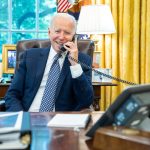Elon Musk, the world’s richest man and the founder of SpaceX and Tesla, recently made headlines for his appearance with former President Donald Trump. This wasn’t just any appearance; it was a farewell press conference that felt more like an awkward family reunion. Their friendship has seen better days, especially since Musk expressed his disappointment over Trump’s recent tax cut bill, which Musk claimed would only exacerbate the budget deficit instead of reducing it. Naturally, this tiny rift didn’t stop them from appearing together, perhaps for the sake of good optics and keeping those financial ties intact.
As anticipation mounted for the press conference, reporters were eager to ask Musk questions, but they aimed for some not-so-fun topics. One of them was centered around a New York Times report accusing Musk of blurring the lines when it comes to his drug use. The report even suggested that his habits potentially caused damage to his bladder. Musk was quick to dismiss the story, redirecting the conversation back to the Times’ past missteps, including their Pulitzer Prize-winning coverage of the Russia probe, which he claims was riddled with inaccuracies. It appeared that Musk was more interested in deflecting attention than discussing the more serious allegations laid against him.
Moreover, Musk’s critics had a field day when rumors of his alleged drug use floated through the news. Commentators noted that while Musk might have been a fan-favorite for his innovative ventures, his support for Trump seemed to flip the narrative. Suddenly, the left had a new favorite theme—the notion that a billionaire couldn’t possibly be credible if he had private issues, as if these were the real concerns for everyday Americans. Skeptics of the reporting claimed they didn’t see such an uproar when Musk was a darling of the left, celebrating his success with electric cars and space travel.
When reporters hinted at Musk’s acknowledged use of prescription ketamine, he wasted no time in taking to his social media platforms to declare that he was not using drugs, categorizing the Times’ claims as outright lies. Musk’s vehement denial made for quite the spectacle in the press room, leading to the question: why is this even news? Many conservatives see the media’s obsession with Musk’s private life as a distraction from more pressing issues, such as the surging drug crisis in America. They felt that Musk’s personal habits shouldn’t overshadow the relevant issues that really impact citizens.
Amid the back-and-forth banter, one couldn’t help but feel that there was a strategic advantage to this cordial yet tense meetup. Trump, needing to maintain a good relationship with Musk for potential funding sources, stuck to the script while Musk, though disinterested, played his role. The two men, however, are living proof that even in politics and business alliances, not everything is smooth sailing. They may have grinned for the cameras, but behind those smiles lies a complicated web of political relationships, financial dependencies, and personal scandals.
As if to leave the audience with a memorable closing image, Musk sported a visible black eye, which he playfully attributed to a playful encounter with his son. It was an uncanny reminder that amidst the tumult of high-stakes politics and public scrutiny, life’s simple moments still persist. So while Elon Musk and Donald Trump continue to navigate their complex association, one thing is clear: the show must go on, and the press will be there, camera-ready to capture every punch—literal or metaphorical.




